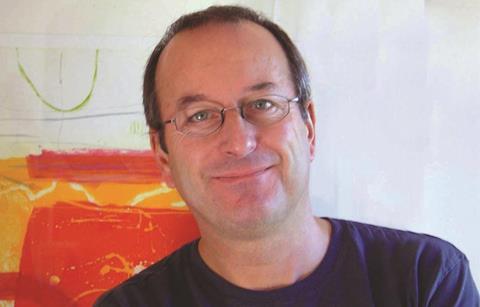After Screen, Adrian joined Thorn EMI as an acquisition executive and later moved into development with British Screen. Since 1990, he has been working full time as a screenwriter. His film credits include Metroland, Tom And Viv and My Week With Marilyn, while his TV work includes David Copperfield and a new adaptation of The Go-Between, which will go out on BBC1 later this year.

Click here for more Screen memories
Biggest Cannes drama?
I can’t recall any one specific drama. It was more the ongoing pressure of getting out a daily magazine in the pre-computer age that was sometimes 140 pages or more. The pressure was unbelievable but it was huge fun, not least because Screen International was the dominant player in the market for those two weeks so everyone wanted to talk to us. I would say the biggest single drama was the rise of Cannon Films – Menahem Golan and Yoram Globus – and the way they completely dominated the marketplace at that time. It seems incredible now.
Favourite Cannes moment?
I remember escaping to a late-night screening of Monty Python’s The Meaning Of Life (pictured) with my co-editor Colin Vaines. We laughed like idiots and at the end a nice American man leaned over to us and asked rather disapprovingly, “Can you tell me what was so funny about that film?,” to which there was no answer really. Whether I was hysterical with the pressure or just in the right mood, it seemed like the funniest thing I’d ever seen and still does.
Proudest editorial achievement during your time at Screen International?
Bringing TV coverage into the magazine. Up to that point we’d been a bit relaxed about TV and video and I think we suddenly realised we were in danger of underserving an industry that was growing stronger by the minute. We certainly weren’t perfect but we laid some good foundations while I was there.
Biggest change in the international film industry that occurred while you were Editor?
The boom in home video rights took everyone off guard, so much so that the big American distributors took years to realise the value of the rights they were sitting on. For a couple of years, it was a free-for-all as video rights drove a new boom in the independent film area. New video companies were springing up every day. It was amazing to see the big companies caught out so badly. They just had no idea home video was going to be important, which is amusing when you think where we are now.
Biggest challenge facing the industry today?
Tough to answer, and I’m probably showing my age now, but for me it’s the gap in the market for grown-up, intelligent mainstream films, which have all but disappeared. I’m not talking about the Oscar bait that comes out every autumn, though some of those are very welcome, but more the mainstream thriller, comedy or love story that used to play to an older audience, who now hardly ever go to the cinema. It’s a huge change since I first started going to the cinema in the 1970s. That whole sector of the market has moved into high-end TV, which is great for TV but not so good for cinema in the long run.






![The Brightest SunScreen[Courtesy HKIFF]](https://d1nslcd7m2225b.cloudfront.net/Pictures/274x183/3/5/0/1448350_thebrightestsunscreencourtesyhkiff_312678.jpg)


















No comments yet